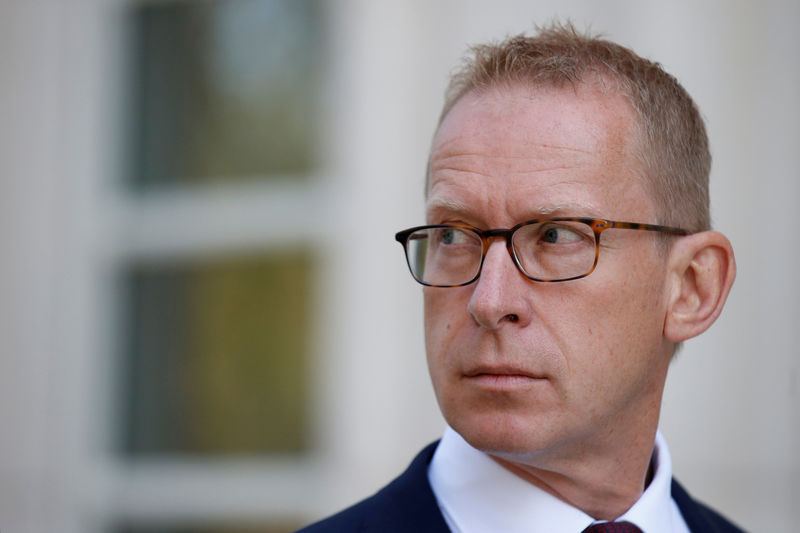By Nate Raymond
NEW YORK (Reuters) - A federal judge in Brooklyn on Wednesday signalled that President Donald Trump's stance on immigration may justify rejecting a HSBC Holdings Plc (L:HSBA) executive's request to return to England while awaiting a U.S. trial on fraud charges.
Mark Johnson, a British citizen who at the time of his arrest in July was HSBC's global head of foreign exchange cash trading, had been allowed to return to England from December to January, and sought permission to travel there again in March.
But U.S. District Judge Nicholas Garaufis said that while he would prefer to let Johnson visit his wife and five children, the current environment might complicate his return.
The judge cited Trump's Jan. 27 order temporarily banning entry to people from seven Muslim-majority countries, which is now being reviewed by the San Francisco-based 9th U.S. Circuit Court of Appeals.
"My problem is I don't know what is going on down in Washington," Garaufis said.
Trump, a Republican who took office on Jan. 20, has defended the directive as necessary to prevent attacks by Islamist militants.
Under a plan proposed by Johnson's lawyer, Garaufis would order his bail to be extended to include the United Kingdom, and Johnson would seek a type of visa he has used before to allow for his return.
During a hearing that sometimes drew laughter in the courtroom, Garaufis said would wait for a 9th Circuit ruling before deciding Johnson's bail conditions.
He said countries such as the United Kingdom, which he said has a "large suspect population," could be added to Trump's list of targeted countries, perhaps preventing Johnson's return to face the U.S. government's case.
"We're in an extremely volatile situation in terms of immigration," Garaufis said. "We just don't know."
Prosecutors said Johnson and another executive, Stuart Scott, in 2011 misused information from a client that hired HSBC to convert $3.5 billion to British pounds in connection with a planned sale of the client's foreign subsidiaries.
The executives then used their insider knowledge to trade ahead of the transaction, causing a spike in the price of the currency that hurt the client, prosecutors said.
Johnson has pleaded not guilty to conspiracy and wire fraud charges. Prosecutors have said they plan to seek Scott's extradition from the United Kingdom.

The case is U.S. v. Johnson et al, U.S. District Court, Eastern District of New York, No. 16-cr-00457.